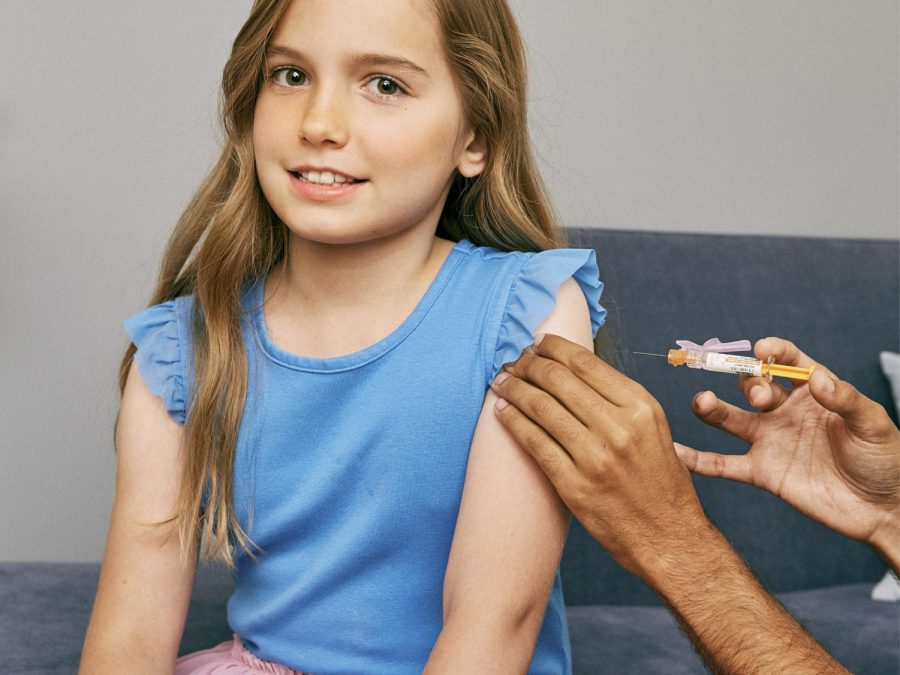FDA authorizes emergency use of COVID-19 vaccine for children
Children age 5 to 11 will be available to receive doses of the Pfizer vaccine as early as this week
Heather Hazzan / Wikipedia
Pfizer began trials for the vaccine in early July, The vaccine, which was administered to 2,268 children, was found to be 90.7% effective in neutralizing COVID-19
November 2, 2021
On October 29, the Food and Drug Administration authorized the emergency use of Pfizer-BioNTech’s COVID-19 vaccine for children ages 5 to 11. The decision followed the recommendation made by an independent advisory panel to the FDA on October 26.
Pfizer began trials for the vaccine in early July, when the contagious Delta variant was dominant. The vaccine was administered to 2,268 children who experienced normal side effects like sore arms and fatigue. It was found to be 90.7% effective in neutralizing COVID-19.
After reviewing the results from Pfizer’s study, an independent advisory panel to the FDA recommended the emergency use of the vaccine. The FDA typically follows the panel’s advice, but were not required to.
“As a mother and a physician, I know that parents, caregivers, school staff, and children have been waiting for today’s authorization,” said Dr. Janet Woodcock, the FDA’s acting commissioner, “Vaccinating younger children against COVID-19 will bring us closer to returning to a sense of normality.”
An advisory panel to the Centers for Disease Control and Prevention will meet on Tuesday to decide whether the vaccine can be used and under what circumstances. Depending on their decision, children could receive their first vaccination in early November.
According to clinical deputy director Dr. Doran Dink, children ages 5 to 11 account for 40% of all pediatric COVID-19 cases. Some children develop serious conditions like multisystem inflammatory syndrome (MISC-C) and myocarditis as a result of COVID-19. Because of this, many experts see the need to vaccinate children.
“The benefits of [the vaccine] far outweigh the known risks,” said Oveta Fuller, a panelist and associate professor of immunology and microbiology on NBC News, “I think we have to take a step and say we want to make this option available…to help the children.”
Others recognize that myocarditis has been a rare side effect of mRNA COVID-19 vaccines, especially in young males. After their second dose, some adults and teenagers experienced inflammation of the heart. Pfizer’s study of the vaccine for children wasn’t large enough to detect myocarditis.
“We have incredible safety systems in place to monitor for the potential myocarditis in this age group, and we can respond quickly” said Captain Amanda John, a CDC medical officer and FDA voting member, at the advisory panel, “We don’t want children to be dying of COVID, even if it is far fewer than adults, and we don’t want them in the ICU.”
Other experts recognized the importance of vaccinating children, but wished that the vaccine could be administered to children at high risk.
“It just seems to me that in some ways, we’re vaccinating children to protect adults, and it should be the other way around,” said Dr. James Hildreth, CEO of Meharry Medical College, “I do believe that children at the highest risk do need to be vaccinated. But vaccinating all of the children…that seems a bit much for me.”
The decision to recommend the vaccine to the FDA was difficult for the panelists, but they voted unanimously in favor, recognizing the benefits of the vaccine.
The CDC advisory panel will make additional recommendations for who should receive the vaccine on Tuesday. Dr. Rochelle Walensky, the CDC Director, will have the final say in the vaccine being administered or not.











